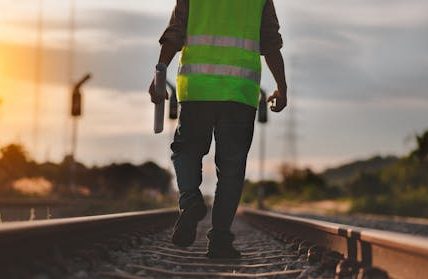Automatic voter registration: a huge step forward for democracy – and a chance to bring missing millions into elections
The UK government has announced planned changes to elections which it claims to be “the boldest and most ambitious change to our democracy for decades”. This includes extending the franchise to 16- and 17-year-olds at parliamentary elections – but also other important reforms such as automatic voter registration.
At the moment, everyone needs to fill in an individual voter registration application at least 12 days before an election. Automatic registration would enable electoral officials to update the electoral rolls without people having to make an application to register to vote. They could use other reliable data to make the electoral register as accurate and complete as possible.
Electoral officials would then write to the potential voter to inform them that they had been added to the register. They would have the opportunity to make any corrections needed.
The details are still to be worked out and the change would not come overnight. The process may be semi-automated to begin with – with the individual process sitting alongside some automation.
Why is automatic registration needed?
Many people don’t register in time for elections. Some don’t intend to vote, but others assume that they’re already registered. Some are also just busy.
The result is that there are around 7-8 million people who are not correctly registered when the polling stations open on election day. A significant number are then turned away. The problem is getting worse as the number of people who are not registered is also rising at an alarming rate.
Estimated number of people missing from the electoral register at UK general elections, 1945-2024.
The number of people missing from the voter .
James, Bernal and Berry, CC BY-ND
What is especially troubling is that there are large gaps in registrations by age, gender, ethnicity and socioeconomic status. Nearly all over-65-year-olds are on the register, but younger people are increasingly missing. Only 60% of 18-to-19-year-olds are on the electoral rolls – and 16% of the soon-to-be-enfranchised 16- to 17-year-olds (you can currently register to vote at 16).
Automatic registration will therefore be crucial to making votes at 16 a success. Asking and reminding young people to register would inevitably involve an enormous administrative effort. But if data could be transferred from schools and government departments to election officials to put them straight onto the roll, it would save both time and money – and bring about a higher participation rate.
Does automatic voter registration work?
Roughly half of countries around the around the world use automatic voter registration – including Germany, the Netherlands, Iceland and Finland. Countries which have historically not had automatic registration, such as the US, Malta, Canada and Australia, have all moved to at least partially implement it over recent years.
The UK is thought have one of the more difficult voter registration systems compared to other countries. The evidence is that automatic voter registration leads to more accurate and complete electoral registers. It can therefore reduce the opportunity for fraud and increase convenience for citizens.
What data might be used?
In a recent report with colleagues, I set out how this can be implemented and suggested a range of datasets that could be securely used.
Electoral rolls could be updated when people apply for a passport, register to pay council tax, update their driving licence details, register at university or claim benefits. Electoral officials could also be authorised to update the electoral rolls with data such as council tax data and information held by the Department for Work and Pensions.
One option would be to register people to vote when they apply for a passport.
Shutterstock/ClimbWhenReady
Data sharing is already used in electoral registration. Every time a voter registration application is made, it is checked against another government dataset. There is therefore already the data infrastructure to enable automatic registration to work.
Electoral officials already use such data to register, remove or re-register people. This has enabled a lot of savings and less administrative hassle for many people.
Voter identification changes
The government’s election bill proposals will also extend the forms of identification that voters can present at polling stations to include bank cards. It clears the path for future digital forms of ID to be accepted.
The last government introduced a requirement for everyone to provide photographic identification at polling stations at UK general elections and some local elections. Accepted forms of identification include passports and driving licences but also a range of other options. If citizens don’t have identification, then they can apply for a free voter authority certificate, provided that they do so before the deadline.
However, our research found that many people were turned away in polling stations as they did not have required identification. Poll workers reported that the impact particularly affected some groups, such as students and women.
The UK is now ranked in the bottom half of countries in the UK by election quality. The proposed changes to electoral law are therefore urgent, important and will strengthen elections in areas where they are weak.
They may not, however, go far enough. The previous government restricted the independence of the Electoral Commission and these changes have not been reversed by the Labour government. The Electoral Commission will play an important role in automatic registration, so the government could renew its independence to help build confidence and trust in elections.
Nonetheless, the move to automatic registration would be a major step forward for a changing democracy – as long as the government now puts on the afterburners to power the effort needed to make these changes work effectively in time for the next election.
Toby James has previously received funding from the AHRC, ESRC, Joseph Rowntree Reform Trust, British Academy, Leverhulme Trust, Electoral Commission, Nuffield Foundation, the McDougall Trust, Unlock Democracy, International IDEA and the Canadian SSHRC.




